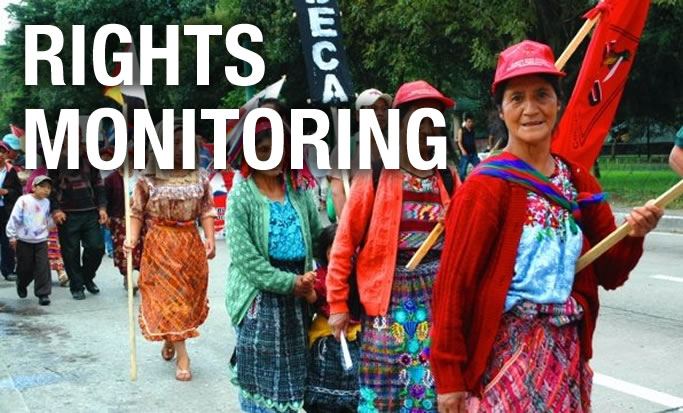 Poverty and inequality are so pervasive and widespread that they can seem like an inevitable tragedy. Sometimes this failure is glaring, particularly where deprivation results from abusive or negligent actions or omissions by officials such as evicting people arbitrarily (a breach of the duty to respect rights) or doing nothing when parents prevent girls from going to school (a breach of the duty to protect). More often, however, poverty and inequality result from a failure to create the conditions in which people can access their rights. In such cases, the responsibility to fulfill economic and social rights can be more difficult to pin down.
Poverty and inequality are so pervasive and widespread that they can seem like an inevitable tragedy. Sometimes this failure is glaring, particularly where deprivation results from abusive or negligent actions or omissions by officials such as evicting people arbitrarily (a breach of the duty to respect rights) or doing nothing when parents prevent girls from going to school (a breach of the duty to protect). More often, however, poverty and inequality result from a failure to create the conditions in which people can access their rights. In such cases, the responsibility to fulfill economic and social rights can be more difficult to pin down.
"Each State Party to the present Covenant undertakes to take steps, individually and through international assistance and co-operation, especially economic and technical, to the maximum of its available resources, with a view to achieving progressively the full realization of the rights recognized in the present Covenant by all appropriate means, including particularly the adoption of legislative measures." --International Covenant on Economic, Social and Cultural Rights, Article 2(1).
Effective monitoring is essential for making human rights meaningful and for ensuring accountability when laws and policies create, perpetuate or exacerbate deprivations of economic and social rights. However, establishing that such policy failures amount to a violation of the obligation to fulfill economic and social rights can be challenging. The rights enshrined in the International Covenant on Economic, Social and Cultural Rights are subject to "progressive realization," according to a state’s "maximum available resources." The conditionality of this language, combined with complexity of public policy, make it difficult to trace patterns of preventable rights deprivations back to policy failures.
For this reason, NGOs and other advocates need practical tools and publications on how to monitor the realization of and demand accountability for denials and violations of economic and social rights. CESR has been at the forefront of efforts to forge new ground in measuring and monitoring compliance to states' obligations to fulfill economic and social rights. We believe that human rights monitoring can serve as a powerful advocacy tool for social justice. For this reason, we work to provide civil society organizations, NGOs, national human rights institutions and other advocates with practical and accessible resources and publications on how to utilize multidisciplinary tools to better monitor the realization of economic, social and cultural and demand accountability for denials and violations of these rights.
CESR has developed a simple and comprehensive four-step framework for analyzing various aspects of the obligation to fulfill economic and social rights. More information about the OPERA framework - which stands for Outcomes, Policy Efforts, Resources and Assessment - can be accessed here. A series of discussion papers addressing monitoring issues are meanwhile listed below.
We also help coordinate the ESCR-Net Working Group on Monitoring Methods, a community of, by and for human rights activists and practitioners that is committed to harnessing innovative tools and techniques to monitor the actions of governments and other actors from a human rights perspective. On the group’s website, members can connect to find resources, exchange ideas, build knowledge, share good practices and discuss critical issues around monitoring economic, social and cultural rights.